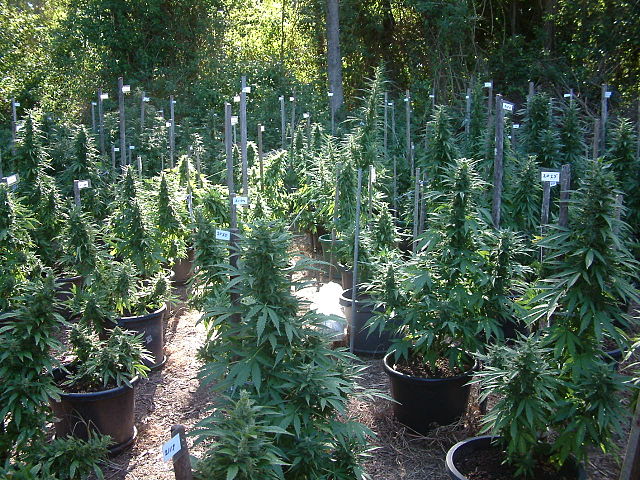House Committee on Veterans’ Affairs, Brookings Institute encourage more freedom for cannabis research.
WASHINGTON D.C.—In a letter to the Secretary of Veterans Affairs on Thursday, the House Committee on Veterans’ Affairs called on the VA to increase efforts to research the efficacy and potential benefits of medical cannabis.
On the same day President Trump declared opioid addiction a national crisis, the house committee’s request cited veterans and veterans’ organizations increasing support for research of medical cannabis as an alternative to treat chronic pain, as well as other conditions that may benefit from cannabinoid therapy, like post-traumatic stress disorder (PTSD).
Military news outlet Stars and Stripes quoted lawmakers, who said medical marijuana research was “integral to the advancement of health care for veterans and the nation.”
House Committee on Veterans’ Affairs Ranking Member Tim Walz (D-MN), signed the letter, along with Reps. Mark Takano, (D-CA); Julia Brownley (D-CA); Ann Kuster (D-NH); Beto O’Rourke (D-Texas); Kathleen Rice (D-NY); J. Luis Correa (D-Calif); Kilili Sablan (I-Northern Mariana Islands); Elizabeth Esty (D-Conn), and Scott Peters (D-Calif).
A day earlier, in an unrelated but interesting turn of events, Washington D.C.-based nonprofit policy think-tank The Brookings Institute published an essay, entitled “AG Sessions blocks progress on medical cannabis research.” In it, authors John Hudak and Christine Stenglein outlined the federal government’s recent relaxation of restrictions on facilities that may supply cannabis for research. Twenty-six facilities have applied to be considered to become new federal suppliers.
Citing a recent Senate Judiciary Committee hearing in which Senator Orrin Hatch (R-Utah) questioned U.S. Attorney General Jeff Sessions about progress being made with the application process, the Brookings authors said that Sessions’ responses betrayed an anti-marijuana bias that may be delaying legitimate research. Among other things, they said:
“The Attorney General offered a weak response that highlighted his own biases on the issue, a division of opinion between him and the president he serves, and a federal government effort to stand in the way of the free conduct of research.”
And, “There should be more research into cannabis’ medical efficacy, and the Attorney General of the United States needs to stop allowing his own ideological biases from preventing the free and open conduct of research.”
Similar to what the House Committee noted in its letter to the VA Secretary, the Brookings Institute authors also said, “In addition, recent research has suggested that cannabis may have medical value in dealing with the opioid epidemic and caring for our wounded warriors who have PTSD and other ailments.”










